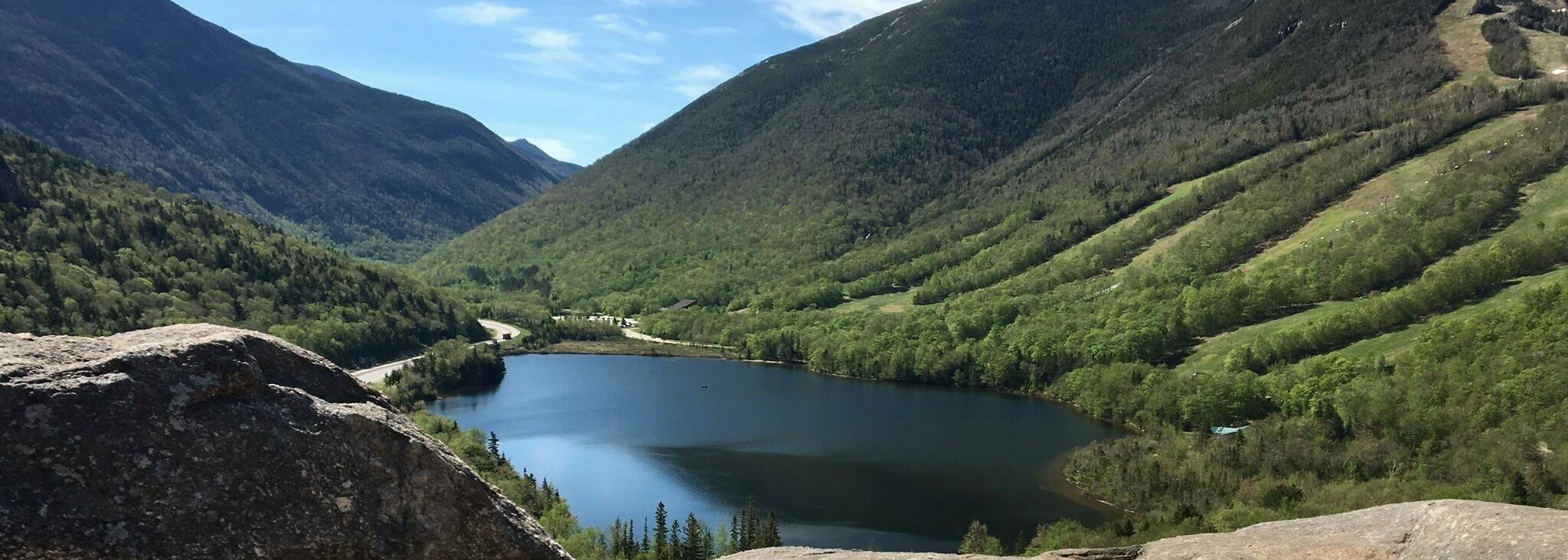Are you excited about the upcoming boating season? Before you launch into the water, make sure you and your boat are ready for a lake-friendly summer.

Register, inspect, and care for your boat
- Ensure you have the proper paperwork. Review your boat insurance policy. Make sure your boat registration and boater education certificate are on board. Check that your trailer tags are up to date.
- Dewinterize your boat away from the water so no materials inadvertently end up in the lake.
- Because New Hampshire has no formal recycling program for plastic used in boat winterizing, consider switching to a reusable boat cover this coming fall.
- Check for any signs of wear and tear, including cracks, leaks, or damage to the hull.
- Ensure that all mechanical systems are working. Look for signs of chewed damage from mice along wires. Check the engine, steering, and electrical components for potential damage.
- Address any damage you find to prevent it from worsening. This will protect your vessel and the lake from deteriorating materials that could harm the environment.
- Inspect your trailer. Check the tires, lights, and brakes to ensure everything is working.
Check and maintain safety equipment
Safety should always be the top priority when boating, especially when preparing for your first time on the water.
- Inspect personal flotation devices. Check that they are properly sized and in good condition. Children under 13 in New Hampshire must wear US Coast Guard-approved life jackets while on a vessel.
- Test smoke, carbon monoxide, fume, and bilge alarms.
- Check that fire extinguishers and flares are in good condition and up to date. Contact your local county public works department, police, or fire department to dispose of expired flares.
- Dispose of any expired or damaged equipment according to local regulations.
Clean and dispose of waste responsibly
Cleaning your boat can be an essential part of de-winterizing, especially to remove winter debris. However, it’s crucial to do so in a way that minimizes harm to nearby water resources.
- Plan your cleaning area above a retention basin or rain garden to soak up excess water.
- Before the season starts, find cleaning products that are formulated for marine use and biodegrade quickly.
- Once you find your cleaning products, follow the dilution recommendations. When the product recommends a range of dilutions, opt for the weakest dilution.
Make a plan for cleaning your boat and trailer after use, such as using high-pressure and hot water. The invasive spiny water flea was recently found in New Hampshire’s waters and requires proper clean, drain, and dry methods to prevent its spread.
Plan to boat responsibly
Practice responsible boating once you’re out on the water to reduce your environmental impact.
- Know the lake you’re visiting. Look up sensitive areas, such as near shorelines or loon nesting sites, where you should avoid speeding and producing a wake. This helps prevent erosion and disturbance to wildlife. Soil eroding from the shoreline affects water quality and adds nutrients to the water. These nutrients can contribute to algal growth and lead to oxygen depletion.
- Look for facilities to dispose of trash or waste onboard. Make a plan for your bathroom breaks. Do not dump sewage or other pollutants into the water.
Plan where you can clean your boat before and after visiting the lake. Let your local Lake Host know your boating information to help prevent the spread of aquatic invasive species. Learn more about the Lake Host Program here!
We all have a role in protecting the lakes we love for the future. These efforts help keep the lakes healthy and safe for years to come.


 by Martech Consulting
by Martech Consulting